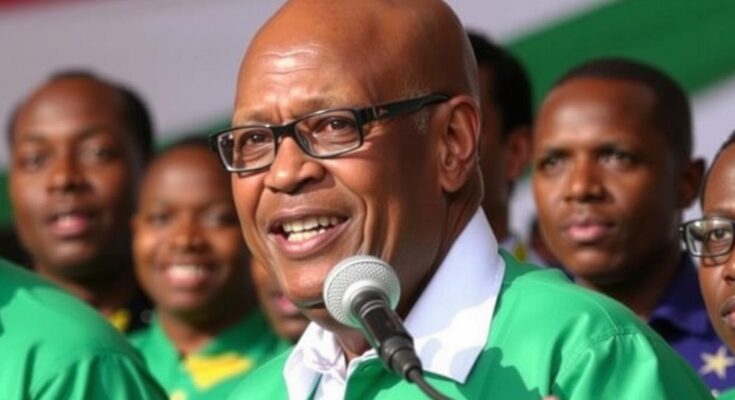Chad’s ruling Patriotic Salvation Movement has won a majority in the recent parliamentary elections despite a boycott from opposition parties citing transparency issues. The election results indicate the MPS secured 124 out of 188 seats in the National Assembly, with a voter turnout of 51.56%. President Mahamat Idriss Deby’s government sees this as a step towards democracy, while the opposition remains skeptical of the process.
The results of Chad’s parliamentary elections conducted last month indicate that the ruling Patriotic Salvation Movement (MPS), led by President Mahamat Idriss Deby, has successfully secured a majority. Despite a notable boycott from opposition parties, the government claims this election marks a significant step towards democratic transition. The National Elections Management Agency (ANGE) announced that the MPS holds 124 of the 188 available seats in the National Assembly, with an estimated voter turnout of 51.56%. Agency head Ahmed Bartchiret revealed that a total of 38 political factions would have representation in the assembly, although details concerning the distribution of seats among non-MPS parties remain ambiguous.
Opposition parties, including Succes Masra’s Transformateurs, refrained from participating in the election due to concerns over transparency and fairness. They argue that the electoral process was compromised, an accusation denied by the government. President Deby initially rose to power in 2021 as an interim leader following the death of his father, who ruled Chad for three decades.
Since assuming the presidency, Deby’s administration has severed military cooperation with France and signaled intentions to withdraw from a regional security alliance, actions reminiscent of recent shifts by Mali, Niger, and Burkina Faso towards reducing French influence in the region. In a related development, the Chadian government reported that security forces thwarted an attempted attack on the presidency, which was characterized as a destabilization effort.
Chad’s political landscape has been marked by tension and instability, particularly following the death of longtime President Idriss Deby in 2021. His son, Mahamat Idriss Deby, declared himself as the interim president, leading to the formation of the MPS as the ruling party. The recent parliamentary elections followed a climate of opposition resistance and claims of unfair electoral practices. The opposition’s boycott serves to highlight ongoing dissatisfaction with the ruling government, citing the need for more transparent electoral processes in the nation. Additionally, Chad’s military realignments and the distancing from France illustrate broader geopolitical trends in West Africa, particularly a shift towards alliances with Russia and away from former colonial powers. This context provides essential insights into the implications of the ruling party’s electoral success, coupled with the reactions from the opposition and the overarching sentiments regarding governance in Chad.
In conclusion, the ruling Patriotic Salvation Movement’s electoral victory, achieved amidst an opposition boycott, underscores the complexities of Chad’s political environment. While the government heralds this outcome as a progression towards democracy, opposition parties challenge its legitimacy due to perceived electoral injustices. This ongoing political discourse, combined with strategic shifts in international relations, particularly concerning France and new affiliations, reflects Chad’s evolving governance and security dynamics amidst regional challenges.
Original Source: www.dw.com




